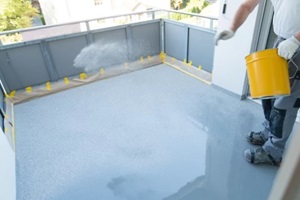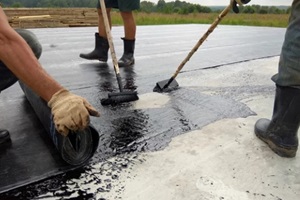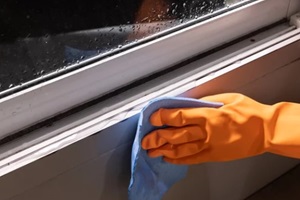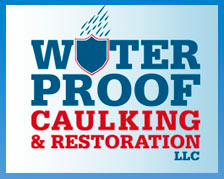 Implementing an effective sealing strategy shields your asset’s structural integrity and preserves curb appeal to keep customers coming in the doors. But with so many material options and sealant types available today, how do you choose what’s best for your NJ commercial waterproofing needs?
Implementing an effective sealing strategy shields your asset’s structural integrity and preserves curb appeal to keep customers coming in the doors. But with so many material options and sealant types available today, how do you choose what’s best for your NJ commercial waterproofing needs?
Read on to discover top considerations and solutions to enhance any building envelope’s performance.
Why Sealants are Crucial for NJ Properties
New Jersey’s diverse climate means structures endure everything from nor’easters and coastal flooding to summer heatwaves. Heavy rains, snow, and ice lead to an ongoing battle against water infiltration and moisture damage.
Such exposure slowly erodes facades over time, while intense UV rays from the sun fade exteriors and compromise architectural details that define a building’s unique visage.
Besides weather, heavy foot and vehicle traffic also take a daily toll on commercial structures across the state. Materials wear down from thousands of shoes traversing lobbies and hallways.
Meanwhile, vehicles constantly park against exterior walls, allowing leaks to penetrate where tires meet concrete. Grimy buildup from car exhaust and general urban pollution stains vibrant exteriors into dull, dirty shades, quickly sapping any aesthetic charm.
Top Sealant Priorities for NJ Commercial Structures
With such environmental factors threatening New Jersey commercial assets daily, smart sealing tactics present the top line of defense. Four factors make sealants indispensable to adequate building performance and maintenance:
Preventing Water Infiltration
Since stopping moisture penetration remains essential for longevity, waterproof barriers make or break a building’s fate. Liquid-applied membranes as thin protective sheets keep outside water from seeping into porous concrete, brick, and stonework. Top seals also help prevent leaks through aging windows, cracks, and wall joints.
Shielding From Extreme Weather Shifts
 New Jersey’s four distinct seasons mean structures endure diverse conditions year-round. A quality sealant system protects against both cold and heat. Winter freeze/thaw cycles strain building materials, expanding minute cracks into gaping holes where water enters.
New Jersey’s four distinct seasons mean structures endure diverse conditions year-round. A quality sealant system protects against both cold and heat. Winter freeze/thaw cycles strain building materials, expanding minute cracks into gaping holes where water enters.
Hot summer sun bakes dark roofs and walls, heating interior spaces that increase cooling costs. Temperature-resistant products withstand expansion and contraction fluctuations.
Defending Against Urban Environmental Factors
Commercial real estate standing alongside major highways or in crowded urban areas see worse wear from vehicle emissions, acid rain, grime, dirt, and deicing road salts.
Specially formulated chemical-resistant barriers protect finishes from corrosion and aesthetic damage such as dirty streaks down building sides. Anti-microbial agents also inhibit mold, mildew, and algae from rooting in chronically damp spots.
Enhancing Curb Appeal for Businesses
Last but certainly not least, sealants keep commercial buildings looking their best to sustain real estate value and tenant and customer appeal.
Preventing major cracks, leaks, and traffic-related filth preserves assets as aesthetically pleasing structures that attract people (and their wallets). Maintained facades to communicate reputability and reliability for those doing business there daily.
Sealant Solutions for Common NJ Commercial Building Materials
Drilling down further reveals smart matches between sealants and finish protection for different surface materials:
- Concrete: Silane and siloxane blends work well to waterproof porous concrete and masonry, allowing trapped moisture to escape rather than further penetrating walls. Consider acrylics for improving exterior appearance, along with protection on pathways, plazas, and concrete pavers.
- Brick: Special water-repellants formulated for masonry enhance water resistance without leaving oily films attracting dirt on historic brick buildings. Top coats also prevent driving rain from entering mortar joints or the porous brick material.
- Stone: To combat erosion and cracking, breathable silane and siloxane sealers withstand mineral leaching from granite, limestone, brownstone, and sandstone facades. Enhance protection on more delicate sedimentary stones such as limestone against acid rain and freeze/thaw exposure.
- Metal: Rust-inhibiting primers limit corrosive damage from moisture and salts on railings, panels, frames, and other metal components. Later, topcoat paints supply further defense for iron, galvanized steel, and aluminum builds.
- Glass: Silicone seal tape placed on window and door frames right before installing glass pan seals out water without comprising transparency like a liquid glaze would. Polysulfide caulking then weatherproofs gaps with its flexibility, accommodating shifting windows in changing temperatures.
Best Practices for Sealant Care and Maintenance
Of course, without vigilant upkeep, even the strongest barriers break down eventually. Don’t take sealants for granted by incorporating such best practices into regular building management:
 Conduct thorough sealant inspections at least twice yearly, which is especially important before and after cold winter months. Probe for weaknesses allowing moisture intrusion or exterior filth buildup.
Conduct thorough sealant inspections at least twice yearly, which is especially important before and after cold winter months. Probe for weaknesses allowing moisture intrusion or exterior filth buildup.- Plan proactive touch-ups and repairs as needed rather than waiting for major damage to signal a problem. Early intervention prevents exponentially costly structure issues down the line.
- Factor a complete overhaul for reapplication into maintenance budgets approximately every 3-5 years, depending on traffic volume and environmental factors facing facilities. Rejuvenating cracked, weathered layers maintain waterproofing integrity.
Protect Your NJ Building with Waterproof Caulking & Restoration
New Jersey commercial structures depend on reliable envelope protection to withstand the specific environmental threats targeting buildings in this region. Implementing ineffective seals or deferring proactive maintenance can result in expensive and dangerous structural issues down the road.
Don’t take chances by viewing sealants as an extraneous expense. These solutions pay dividends by enhancing sustainability, real estate value, and brand reputation into the future. As experts in NJ commercial waterproofing, Waterproof Caulking & Restoration recommends prioritizing sealing that preserves your asset’s structural integrity and aesthetic charm.
Our solutions address vulnerabilities from weather, traffic, pollution, and other problematic conditions commercial buildings battle daily. Contact us today at 484.265.9646 or schedule a consultation online to discuss custom sealing tactics to maximize your property’s potential to thrive for years ahead.
